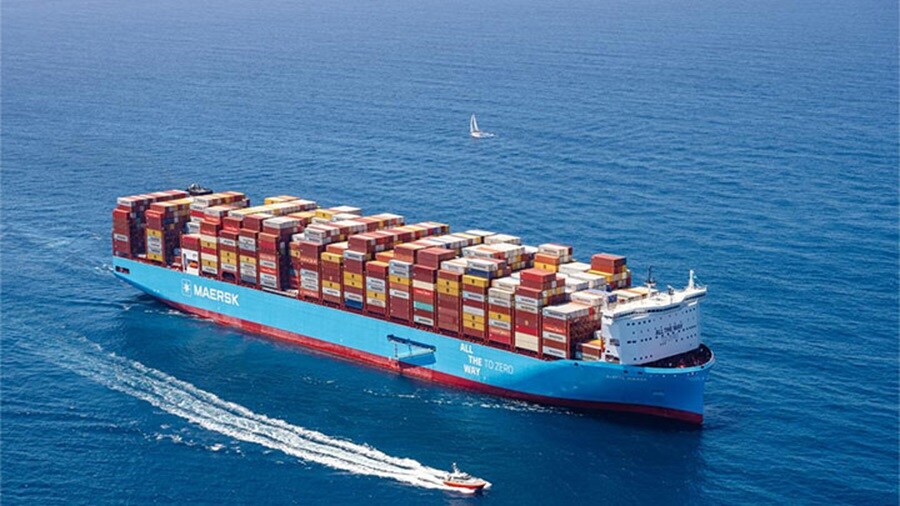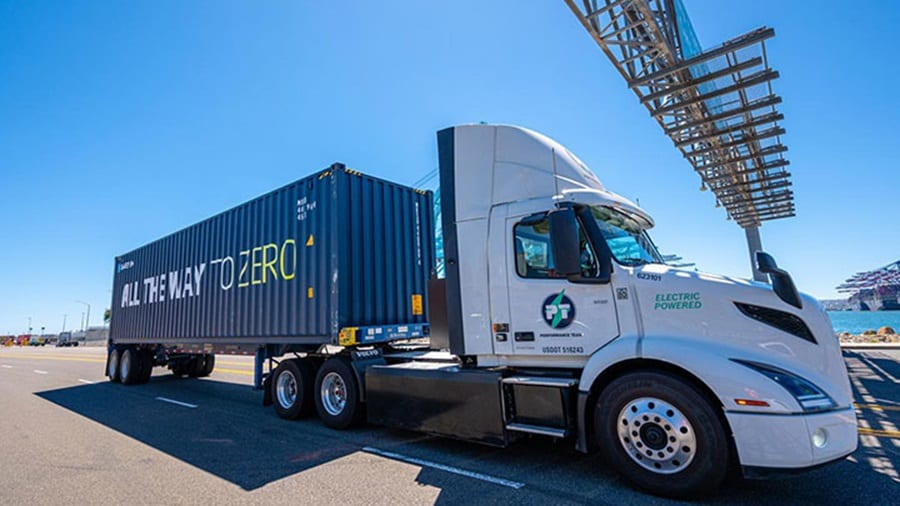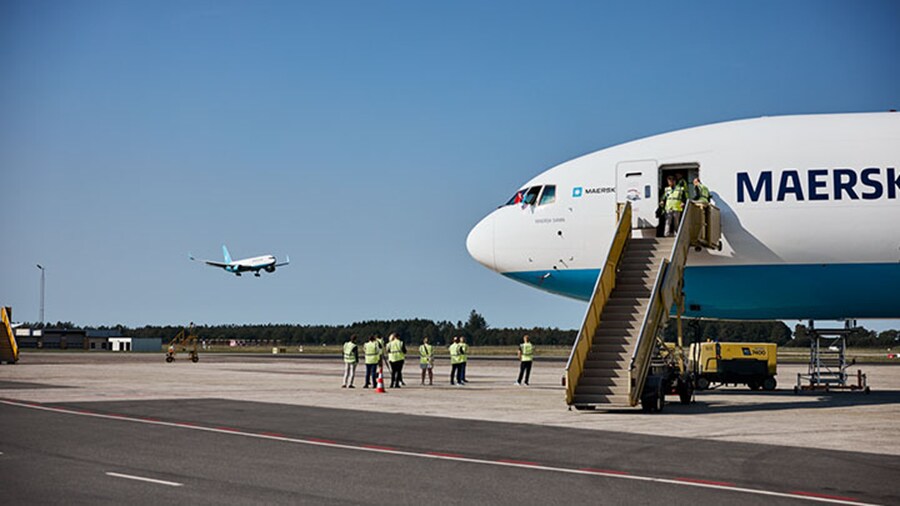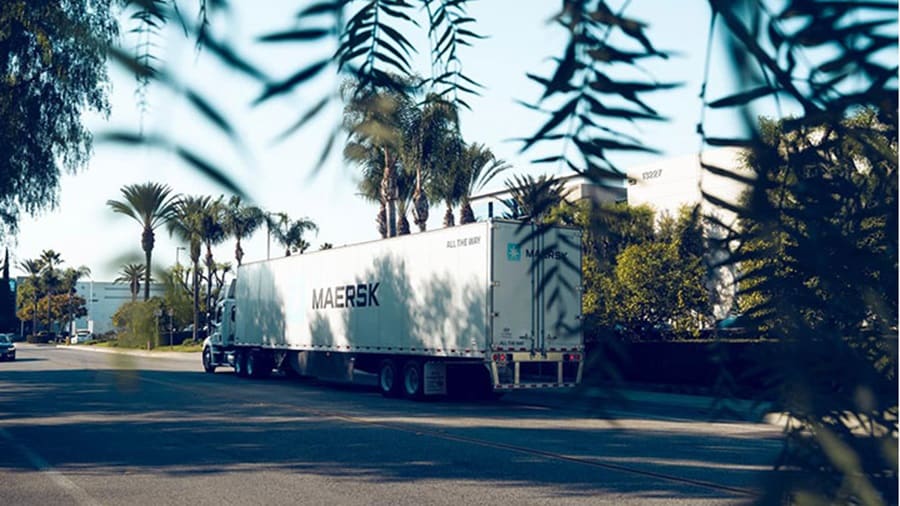Market Environment
The global economy grew at a moderate though robust pace in Q3, keeping full-year growth in line with previous expectations. Growth, however, is once again unbalanced across regions and sectors. The services sector remains the main driver, while the fragile recovery in manufacturing activity observed in the first half of the year came to a halt. The Global Manufacturing Purchasing Managers Index fell into contractionary territory in Q3, averaging 49.4. New orders plummeted, and inventories rose among manufacturers in the US and Europe.

When it comes to regions, the US is still driving the global expansion. The Federal Reserve move of 50bp cut cast out recession fears, and the US consumer is still optimistic, supported by a resilient labor market and continued wage gains. Total goods demand was up 2.7% year-over-year in July and August. Sticky core inflation and a recent dip in consumer confidence are clouds on the horizon for US consumption but all in all, the expectation is to see continued robust economic growth.
Container trade remained strong in Q3. Demand is estimated to have grown 4-6% year-over-year. Exports out of China and Southeast Asia make a very large portion of such growth. Imports grew above average in Latin America and North America, while imports into Africa turned negative.
Gain more insights by downloading the full Maersk Q3 Results report here
Ocean Update
The Drewry WCI composite index decreased 4% to $3,095 per FEU, which is 70% below the previous pandemic peak of $10,377 in September 2021, but 118% more than the average 2019 (pre-pandemic) of $1,420. Some minimal congestion caused by the ILA three day strike in early October remains at US East Coast and Gulf ports though operations have mostly recovered. Some observers anticipate that the strike will still lead to some capacity and equipment shortages at Asian origins in early November.
Mediterranean to North America: Vessels are currently operating at full capacity with no room for additional volume in the network. To accommodate small volumes, we continue to accept Spot bookings directly from certain ports, primarily Algeciras.
North Europe to the U.S.: Vessels are currently sailing at full capacity and roll pools are forming in most ports due to operational limitations. Unfortunately, we are unable to incorporate more volume into the system and have limited Spot availability.
North Europe to Canada: Low water levels in the St. Lawrence River in Canada are starting to impact operations. We have announced an LWS (Low Water Surcharge) of $150/20’ container as the low water levels will limit the amount of cargo we can load to vessels due to draft considerations. These practical limitations may disrupt equipment flow into Canada, potentially affecting the export market. We will provide regular updates to all customers to help with planning during this period.
Asia Pacific to the U.S.: Since the Golden Week holiday in the Asia Pacific region at the start of October, we've noticed a consistent uptick in demand. Specifically focusing on the US East Coast, there were slight delays for vessel arrivals back to Asia in weeks 44-45 due to schedule disruptions. To tackle this, we swiftly deployed gap loaders to maintain stable operations and cater to our customers' needs.
Remember, we encourage you to plan ahead. To ensure a smooth sailing experience, we recommend booking your slots as early as possible. Early bookings help us serve you better and keep your operations running seamlessly.
India, Pakistan, and the Middle East to North America: the slack season with decreased demand has set in. Notably, there is a significant decline in the long-term contract segment, largely due to seasonal factors and volume shifts away from the US East Coast from customers following the recent ILA strike. We are actively adapting to market changes to maintain high vessel utilization.

Current congestion impacting Mexico
Gulf: The recent rough weather has caused temporary closures at Ports in Altamira, Veracruz, and Progreso, affecting our import services and leading to delays due to waiting times. On the export side, shipments are still waiting to board the next vessel due to ongoing issues. Some services like UCLA or Brazex have faced challenges due to the congestion in Cristobal and Panama Ports (Manzanillo & Balboa) and the ILA strike in early October.
Pacific: We're seeing disruptions in arrivals at Lazaro Cardenas and Manzanillo due to high yard occupation, impacting the reliability of our Asian services.
To manage this, we're making port swaps and omissions to prevent further issues at upcoming ports. The AC1 & AC2 services were highly impacted by not having a confirmed window in Lazaro Cardenas which led to more than 15 days of delay in the return of the cargo. Other services like U8A are facing delays caused by congestion at Acajutla, where one berth is under maintenance, and port congestion at Corinto, resulting in waiting times of 2-3 days.
Your cargo's schedule is our top priority. We are dedicated to keeping you informed about disruptions and operational issues. We recommend moving your cargo from the terminals as soon as possible to improve occupancy and productivity.
Update on ILA-USMX Resumption of Negotiations
On October 25, the leaders of the International Longshoremen’s Association (ILA) and United States Maritime Alliance (USMX) announced the resumption of talks on the Master Contract starting November 2024. The Master Contract, which was recently extended until January 15, 2025, includes a preliminary agreement on wages, subject to resolving all pending issues.
Meetings will take place in New Jersey, where the negotiating committees aim to finalize terms for a new Master Contract Proposal. This proposal will subsequently undergo review by the ILA Wage Scale Committee and, later, by ILA Longshore workers for approval. Both parties are eager to reach a new agreement swiftly and are committed to successful negotiations.
As with all industry negotiations over the years, we are confident that the parties involved are committed to reach an agreement that works for everyone and provides for robust and efficient supply chains.
Gemini Cooperation to deliver our Network of the Future
With around four months remaining until the launch of the ‘Gemini cooperation’ in February 2025, together with Hapag-Lloyd, we are accelerating the efforts in finalizing the details of the Network of the Future. After careful consideration, prioritizing both crew safety and cargo security, we have decided to initiate their cooperation by sailing south of Cape of Good Hope. As the situation remains highly dynamic, Hapag-Lloyd and A.P. Moller - Maersk will return to the Red Sea when it is safe to do so.
The Gemini cooperation has the ambition to generate industry-leading schedule reliability above 90% once fully phased in, while providing extensive geographical coverage and competitive transit times, protected from disruptions and demand changes. The cooperation will comprise around 340 vessels with a total capacity of 3.7m TEU, including 29 mainliner services supported by 28 intraregional shuttle services.
For more details on the Network of the Future and a full overview of the network setups, click here.
Ground Freight Update
North American ground freight saw a 0.3% year-over-year volume decline in July and August, though signs suggest that the sector has stabilized, with contract truckload volumes showing improvement. Truckload supply continued to expand, exerting downward pressure on rates, while tight capacity in the Less Than Truckload segment contributed to higher rates as reported in our latest Q3 results.

Drayage Update
The US trucking industry is navigating through economic transitions, regulatory changes, and evolving market dynamics, with significant impacts on operating costs, market behavior, and outlook. Looking ahead to 2025, the North American trucking industry is poised to navigate a complex landscape shaped by economic transitions, regulatory changes, and evolving market dynamics. Key factors influencing the trucking industry include freight demand, equipment production, macroeconomic trends, and the implementation of the CARB Clean Truck Regulation in five states. Additionally, the ongoing shift towards zero-emission vehicles (ZEVs) will gain momentum as fleets explore options for battery-electric trucks, with the development of charging infrastructure and regulatory incentives critical in driving adoption beyond pilot programs.
Operating costs have increased significantly, with diesel, insurance, and labor costs rising while spot rates remain similar to nine years ago. Carriers have remained under significant cost pressure, while shippers have been able to source capacity and realize an additional round of decreases in the RFP during the first half of 2024. Prices for diesel fuel, representing a large portion of a carrier’s overall cost, can greatly impact a trucking company’s profitability if it rises or falls faster than freight rates. Many carriers were able to absorb historically high fuel costs in 2022 due to historically high rates, but that hasn’t been the case for some time.
The forecast for 2025 is expected to be a loose market that will transition into a tight market by the second half of the year. The market remains challenging, and carriers continue to attempt to find ways to decrease their operational costs and stay in business. A weak first half of 2025 is likely, but it will still likely be an increase from 2024 levels. As we move past the midpoint of the year, decreased levels of carrier supply are expected to result in a steeper increase in cost per mile. As bid cycles ramp up, carrier due diligence will be key to ensuring limited impacts to supply chains; partnership with a longstanding carrier will aid with the industry swings. Maersk's 30+ years of trucking experience across our operating truck SCAC codes makes us a trusted partner no matter the industry headwinds.

Air Freight Update
The global air freight market has seen a mixed picture in recent months. On the capacity side, September saw a slight slowdown in growth to 5% year-over-year, though the expansion continues to be driven primarily by international widebody traffic.
In terms of pricing, global freight rates have remained relatively stable but with notable discrepancies across trade lanes. One positive development has been the decline in jet fuel prices in September, which outpaced the drop in crude oil prices and narrowed the refining crack spread to $13 per barrel.
This easing of fuel costs provides some relief, even as other inflationary pressures persist.
Geopolitical tensions have also impacted air freight operations in some regions. Increased tensions in the Middle East led to airspace closures and disrupted flight routings through turn-backs, cancellations, and delays. Additionally, the implementation of new tariffs by the Biden administration between the US and China on September 27th has introduced additional complexity for shippers in those trade lanes.
Despite these challenges, the air cargo market has continued to see robust demand. The first seven months of 2024 saw a surge in volumes, driven by factors like the rise in cross-border e-commerce from Asia, ocean shipping disruptions, and strong semiconductor and high-tech shipments. Even as consumer spending growth remains modest in key markets like the US and Europe, the shift to online shopping has placed additional strain on air freight capacity.
Looking ahead, if the current demand trajectory holds, 2024 could see full-year air cargo volumes grow by double digits, according to industry forecasts by Xeneta. Maersk will continue to monitor these market conditions and work closely with customers to navigate the evolving air freight landscape. Find helpful information about our air freight network and our services to and from North America.
Product Feature

Maersk Specialized LTL
High claims and customer dissatisfaction with delivery can wreak havoc on your bottom line. When you have time-sensitive or high-value/fragile shipments that need expert handling you need a reliable and experienced service provider.
Maersk’s Ground Freight solution for Specialized LTL (Less-than-Truck Load), is a transportation service that expedites delivery of your goods from full mile to last mile across all zip codes and borders in North America. You can choose from value-added services such as white glove, time-definite trucking, expedited services and consolidation options.
With Maersk Specialized LTL, you can enjoy many benefits, such as:
- Optimized shipping lanes and ground network to help streamline and expedite your cargo operations
- Punctual, efficient, and quality-driven service providers, ensuring your goods arrive safely and on time
- Our digital platform gives your team visibility and control of your goods, also providing an intuitive interface to allow for ease of delivery tracking
- 24-7 local customer support, offering proactive service to ensure your shipments arrive on time and in full
To learn more about Maersk Specialized LTL and how it can benefit your business, contact us or download more information for your business: B2B or B2C. We look forward to hearing from you and helping you optimize your last mile freight needs.
More News from Maersk from around the world
- Maersk reports strong results across all business segments
- Maersk Signs Long-Term Methanol Sourcing Deal
- Maersk and Danone partner to reduce the greenhouse gas emissions of seaborne logistics with ECO Delivery Ocean
- Maersk names latest vessel of its dual-fuel methanol fleet “Alexandra Mærsk” in Felixstowe
- Maersk nears its 'Equal At Sea' 2027 Goal: Achieves 45% women cadets intake in India for 2024
Learn More from the Global Maersk Team
Visit our Insights Hub where we explore the latest trends in supply chain digitization, sustainability, growth, resilience, and integrated logistics. You can also learn what’s happening in our regions by reading our Maersk Asia, Europe and Latin America updates in October.
Updated subscription center
To sign up for the Maersk North America Market Update newsletter, click here and update your preferences when prompted via email.
Get in touch
无论您需要什么,我们都可以随时为您提供帮助
I agree to receive logistics related news and marketing updates by email, phone, messaging services (e.g. WhatsApp) and other digital platforms, including but not limited to social media (e.g., LinkedIn) from A. P. Moller-Maersk and its affiliated companies (see latest company overview). I understand that I can opt out of such Maersk communications at any time by clicking the unsubscribe link. To see how we use your personal data, please read our Privacy Notification.
By completing this form, you confirm that you agree to the use of your personal data by Maersk as described in our Privacy Notification.

